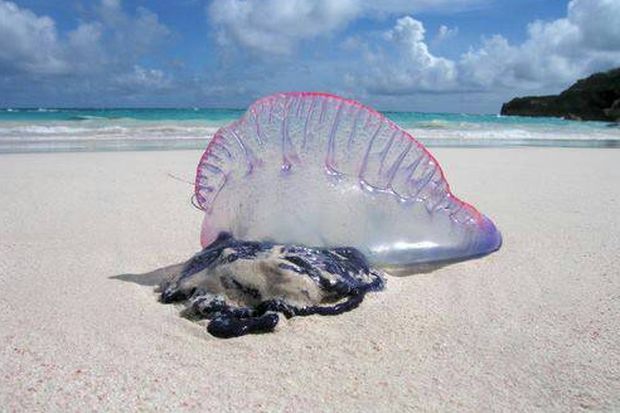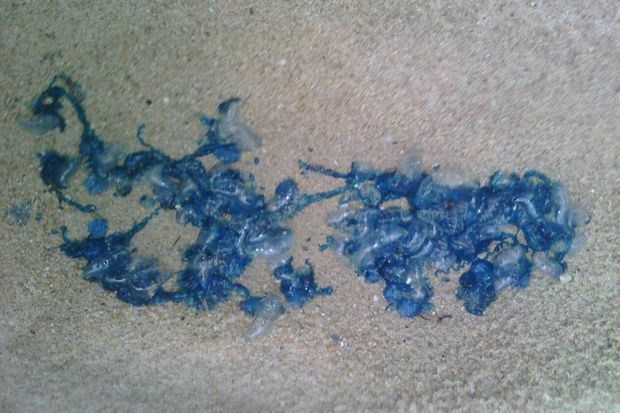
PHUKET - Holidaymakers have been banned from swimming at three beaches in this tourist province after deadly poisonous jellyfish-like creatures were recently spotted there.
Kittiphat Tharapiban, head of Sirinath National Park, said on Saturday that national park officials spotted jellyfish-like Portuguese man-of-wars along Naiyang, Naithon and Layan beaches in Phuket on Friday.
The animals are considered the world’s most venomous species, he added. People touched or stung by it would suffer severe pain. Its venomous stings could cause shock and heart failure, said Mr Kittiphat.
The national park found their presence could pose a danger to tourists swimming at the three beaches. It decided to ban swimming and all water activities at the beaches, said the national park chief.
According to the National Geographic website, a man-of-war sting is excruciatingly painful, but rarely deadly. Even dead man-of-wars washed up on shore can deliver a sting.

A Portuguese man-of-war is shown on a beach in Phuket. (Photo by Achadtaya Chuenniran)